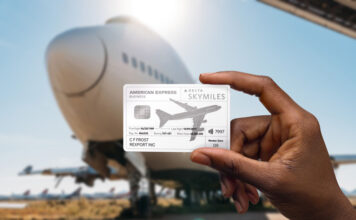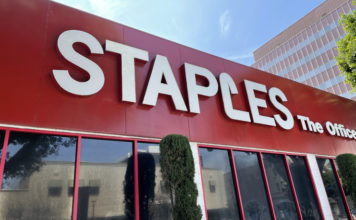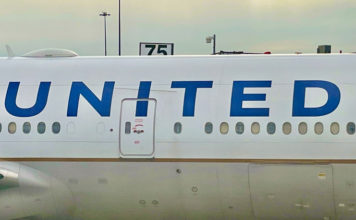
TravelingForMiles.com may receive commission from card issuers. Some or all of the card offers that appear on TravelingForMiles.com are from advertisers and may impact how and where card products appear on the site. TravelingForMiles.com does not include all card companies or all available card offers.
Some links to products and travel providers on this website will earn Traveling For Miles a commission that helps contribute to the running of the site. Traveling For Miles has partnered with CardRatings for our coverage of credit card products. Traveling For Miles and CardRatings may receive a commission from card issuers. Opinions, reviews, analyses & recommendations are the author’s alone and have not been reviewed, endorsed, or approved by any of these entities. For more details please see the disclosures found at the bottom of every page.
Whether they’re scrabbling around for money during a worldwide crisis or whether they just want to make some quick and easy cash during more normal times, a lot of loyalty programs like to run sales on the points and miles they issue. Some of these sales can offer a very economical way to travel in comfort and are worth investigating but regardless of how good a sale is, all of them should come with a health warning that everyone should heed.
Note: I’m writing this post so that I can reference it whenever I write about miles and points sales in the future and so that anyone reading this who happens to be new to the miles and points hobby gets an early understanding of why even the best sales should be treated with caution…but it may also be a good reminder for the more seasoned miles and points collector.
Each time I write a post highlighting the latest miles or points sale by the likes of Hyatt, Alaska Airlines, or IHG Rewards I find that I have to write the same thing in each post at least two or three times just to make sure the point doesn’t get lost: No one should be buying miles or points without having a short-term use for the currency they’re buying.
One of the big problems with loyalty programs is that they get to write their own rules and, not only are these rules not regulated by any external body, the rules are written to favor the program and not the program member. What this generally means is that a loyalty program can change the way it operates at very short notice and even if those changes significantly affect the value of the program’s currency, members of the program have very little recourse.
There are various ways a program can devalue its currency but here are the key ones:
- Increase the cost of award redemptions
- Significantly limit the opportunities to redeem points economically
- Eliminate program “sweet spots” (e.g when IHG eliminated the PointBreaks promotion)
- Change the rules surrounding how miles/points can be redeemed (e.g. when American Airlines stopped permitting stopovers on award bookings)
- Remove valuable partners from the program
- Introduce peak/off-peak pricing
- Introduce variable rate pricing linked to the cash cost of the flight or hotel booking
The good news is that while some programs have been known to make near-instant changes to how they operate, most programs will give between 4 and 8 weeks notice of an upcoming change, but that’s still often not enough time for someone to use their points to their maximum potential (or economically) if they don’t have any plans in place.
A rushed use of points usually requires a lot more compromises (timings, destination, length of trip, etc…) than a well-planned use, and can even be more expensive – if you’re having to use hotel points in a hurry there’s a good chance that the cost of flights to your chosen destination(s) may be high, and if you’re having to use airline miles/points in a hurry there’s no guarantee that you’ll be able to find awards to wherever it is that you’d like to visit. For a lot of people, there may also be an issue getting the time off to use the miles and points if the notice period is short.
Buying miles and points with just a “hope” that you’ll find a good use for them somewhere down the line is a fundamentally bad idea. Every day that passes is a day closer to the next devaluation and, with most loyalty programs, devaluations are a very real fact of life (if you compare the current American Airlines, United Airlines, Marriott, and Hilton loyalty programs to what they looked like just a few years ago, you’ll see what I mean).
In most cases, there’s no way of knowing if/when an airline will open up award space on a flight with enough certainty that it’s worth risking a large purchase of miles or points, and if a hotel isn’t showing award availability for the nights you’re hoping to book, there’s no guarantee that those nights will ever open up (they often don’t).
Planning is key to winning in the miles & points game and without a plan, you’re just taking a gamble in a game that’s rigged to favor the house.
How to buy miles & points
The very best way to make the most of a great miles or points sale is to have an immediate use for whatever currency you buy – that way you’re unlikely to be caught out by any sudden changes to a program and you’re unlikely to get less value out of a currency that you’re buying than you expect to.
Generally, I advise people to follow a simple 5-step plan when considering a miles/points purchase:
- Verify the cost to buy miles/points
- Confirm that an award booking for your chosen flight/stay is considerably cheaper than the cash cost of the same/similar booking – if it’s not there’s no point in buying miles or points.
- Confirm that award flights/award nights are available to book immediately (do not buy miles or points if they’re not)
- Buy the miles and points you need
- Book the award as soon as the points hit your account
Yes, if you’re a veteran of the miles and points game there will be times when it’s acceptable to stock up with some points even if an award isn’t yet available (e.g when you know with reasonable certainty that awards will become available in the very near future) but for most, it’s a very bad idea.
Bottom line
Miles and points sales can be incredibly useful, but they’re also a very good way for an inexperienced traveler to lose some money. Just because someone (like me) says that a miles/points sale offers very good value doesn’t mean that you have to dive in without a solid plan – the next great deal is never more than a few months away so if you don’t have an immediate use for the currency on sale, why not wait until you’ve thought things through?









![The ideal 4 card American Express Membership Rewards team [Updated] a glass door with a picture of a man](https://travelingformiles.com/wp-content/uploads/2021/06/Amex-Centurion-Lounge-SFO-featured-741-356x220.jpg)








[…] be clear about one thing before I go any further: No one should be buying Avios speculatively (read this post if you want to know why). If you don’t have a solid plan for how you’re going to use any Avios you buy you […]
[…] Anyone even vaguely new to the miles and points world should read this post before […]
[…] this sale lies in doing your homework and having a plan for any points that you buy. As always, my one essential rule to follow when buying miles or points comes into play […]
[…] Hopefully, it goes without saying that if you don’t have an immediate need for Hyatt points you shouldn’t be considering this sale – that has always been the case but it’s more true now than ever before (my one essential rule to follow when buying miles and points applies here) […]
[…] The warning I offer with all miles and points sales applies here (as usual) but if you have a short-haul fare that you need to book in the near term, this is a sale you should probably investigate further….and this is why: […]
[…] written about the one essential rule to follow when buying miles or points before and its a rule that’s worth bearing in mind before buying any miles in this […]
[…] usual, my golden rule about miles and points sales comes into play here (more so now than ever before) so no one should be buying points in this sale […]
[…] usual, my golden rule for miles & points sales applies so no one should be buying points without a solid plan for how to use them in the short […]
[…] As always, my golden rule surrounding miles and points sales comes into play so no one should be buying miles in this sale unless they have a short-term use for them and have […]
[…] Anyone even vaguely new to the miles and points world should read this post before […]
[…] As always, my golden rule surrounding miles and points sales comes into play so no one should be buying miles in this sale unless they have a short-term use for them and have […]
[…] As usual, let’s get the formalities out of the way: If you don’t plan to use any Avios you buy in this sale in the near future you should not be participating – my golden rule applies. […]
[…] that you’d be saving money by buying miles), but if you’re not making plans right now, my hard and fast rule about miles & points purchases comes into […]
[…] that you’d be saving money by buying miles), but if you’re not making plans right now, my hard and fast rule about miles & points purchases comes into […]
[…] Anyone even vaguely new to the miles and points world should read this post before […]
[…] with all miles and points sales, my golden rule applies and no one should be buying points without a plan and everyone should be doing some simple […]
[…] As usual, let’s get the formalities out of the way: If you don’t plan to use any Avios you buy in this sale in the near future you should not be participating – my golden rule applies. […]
[…] with all miles and points sales, my golden rule applies and no one should be buying points without a plan and everyone should be doing some simple […]